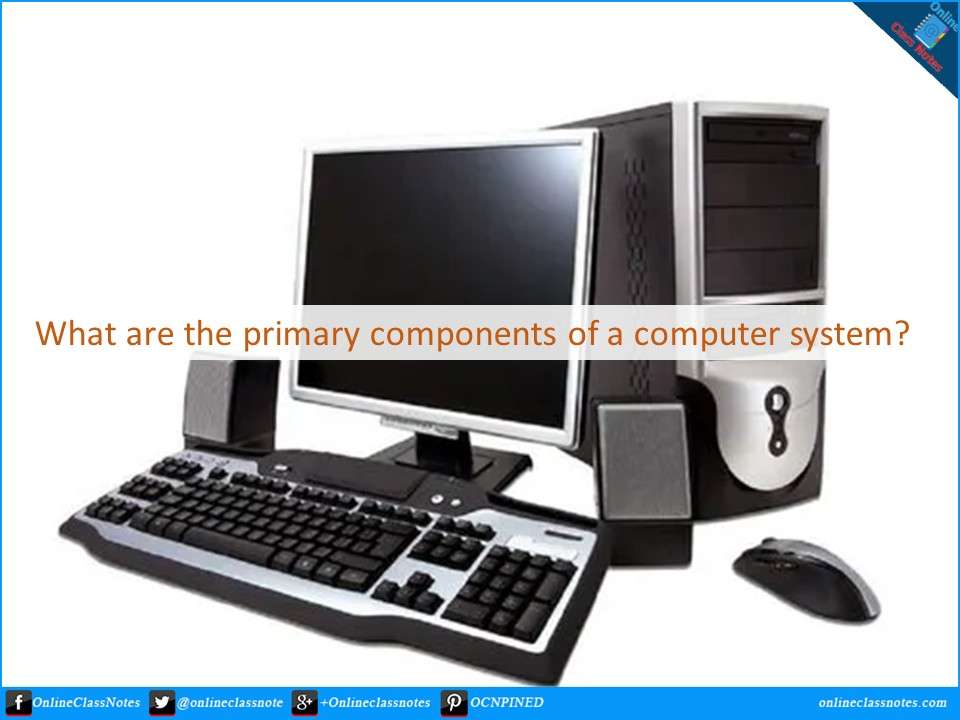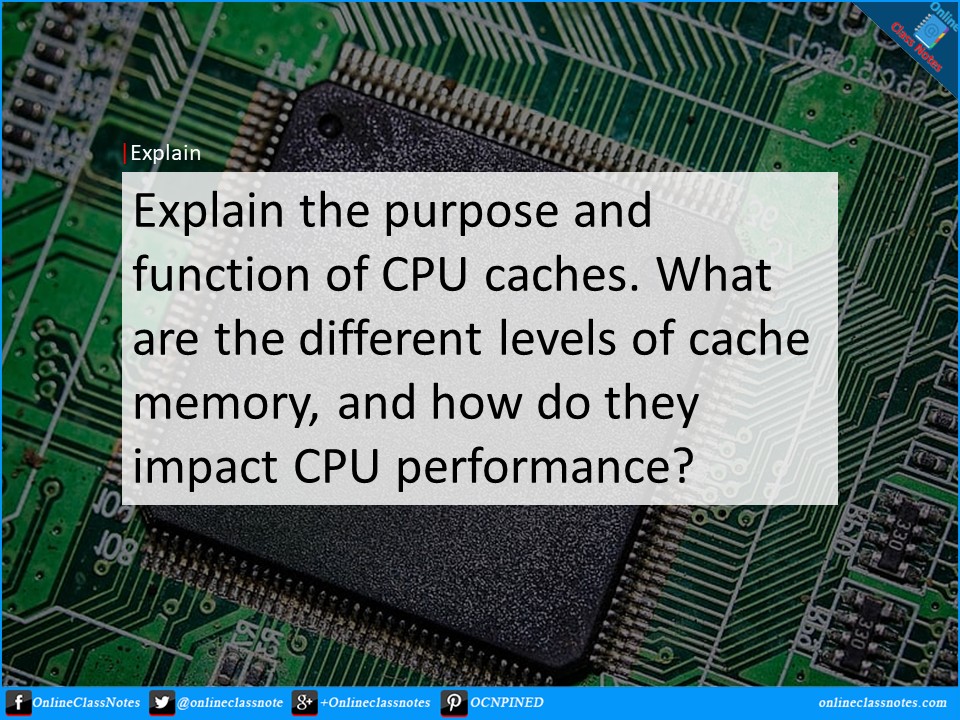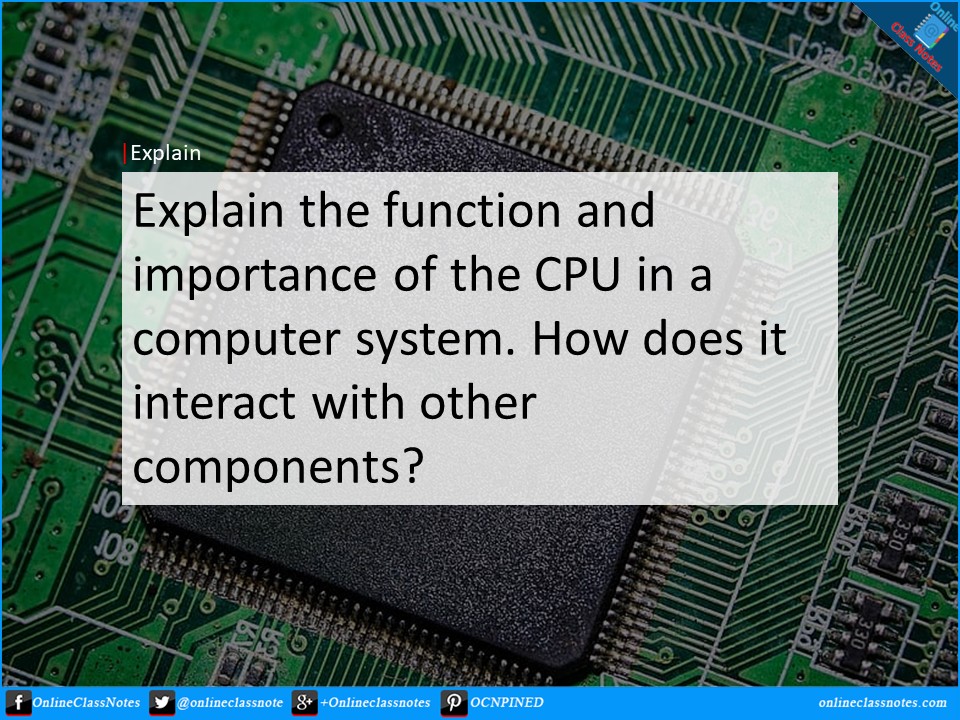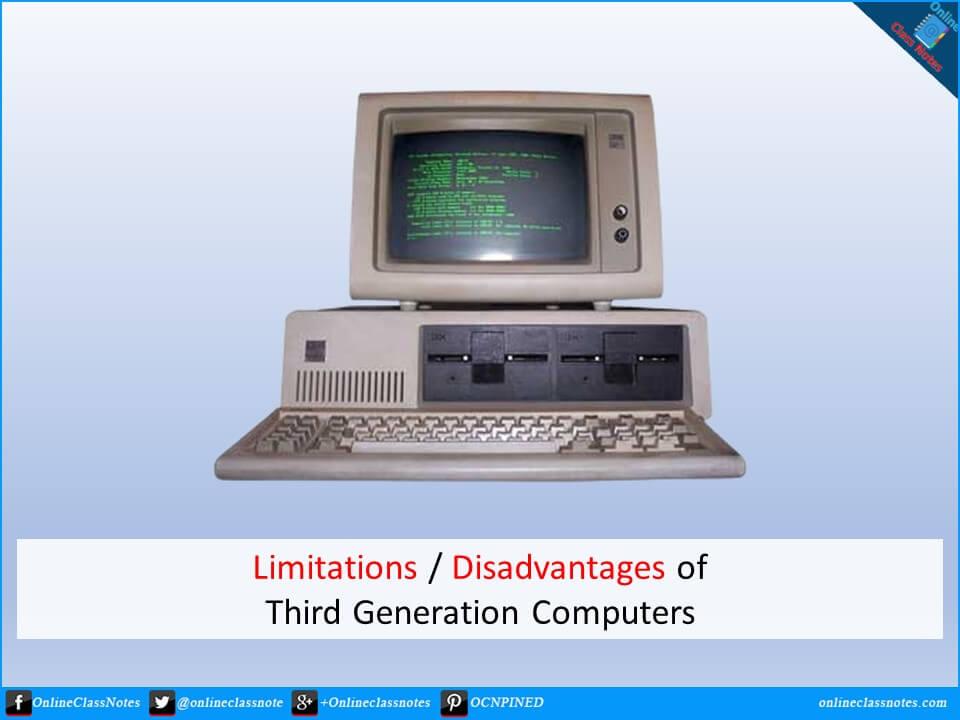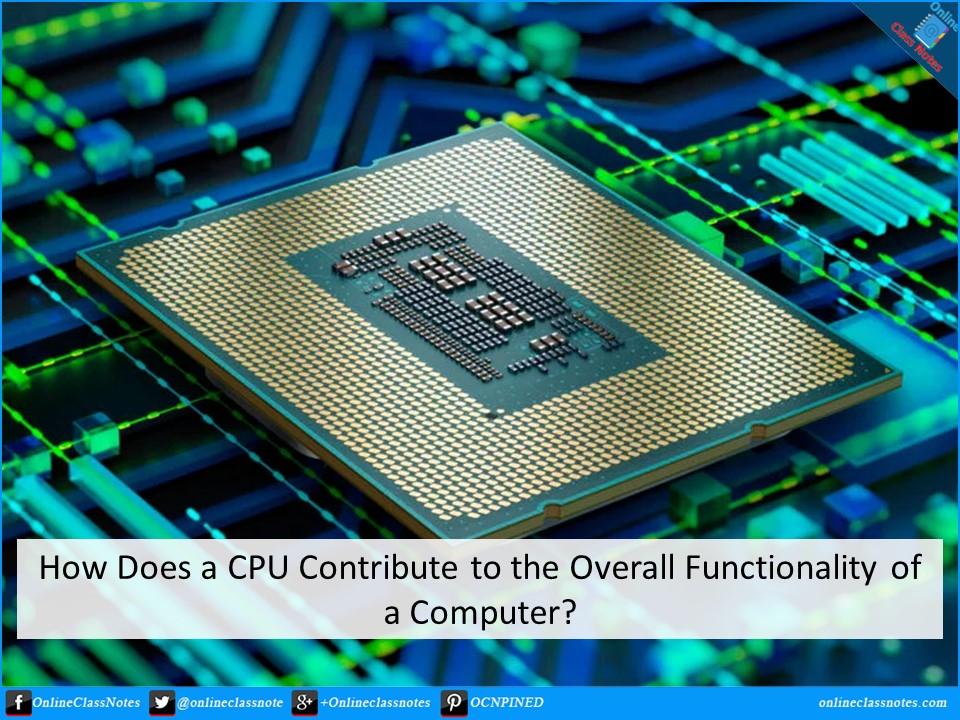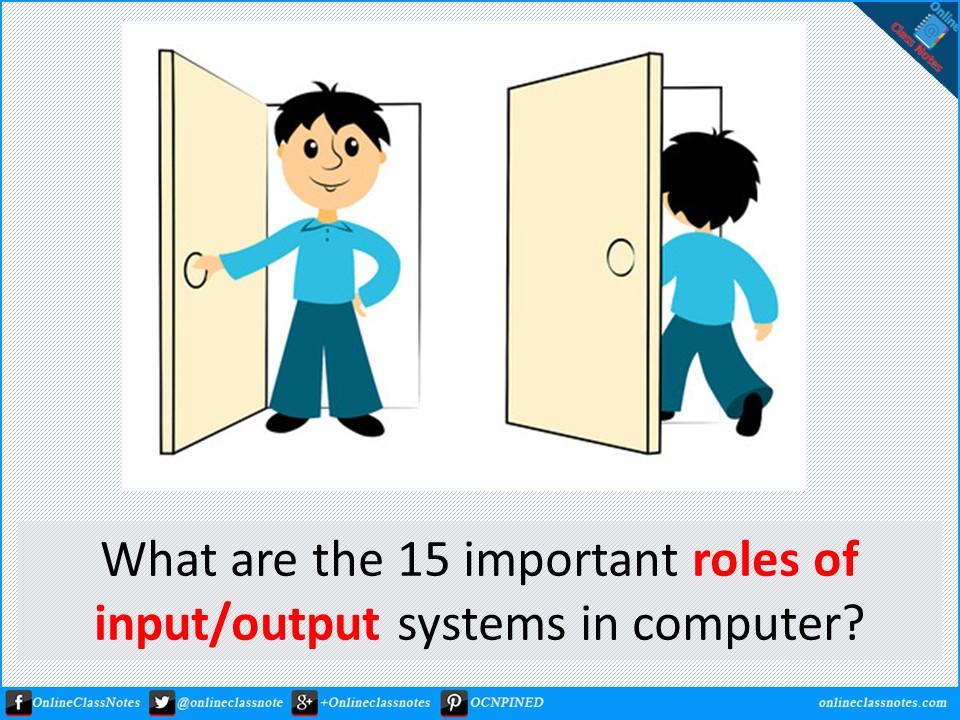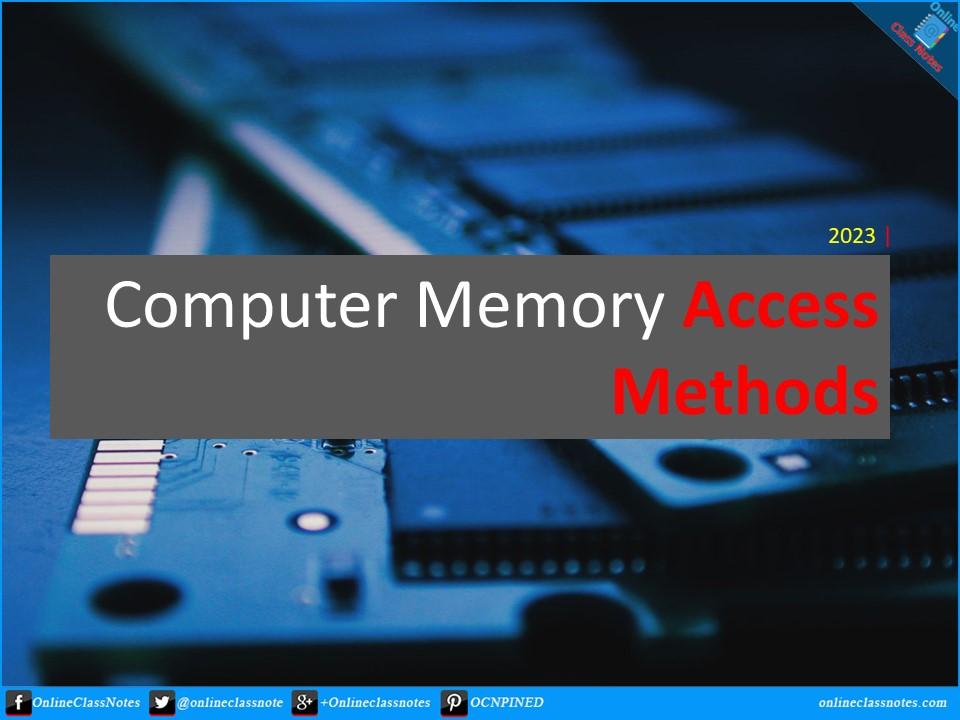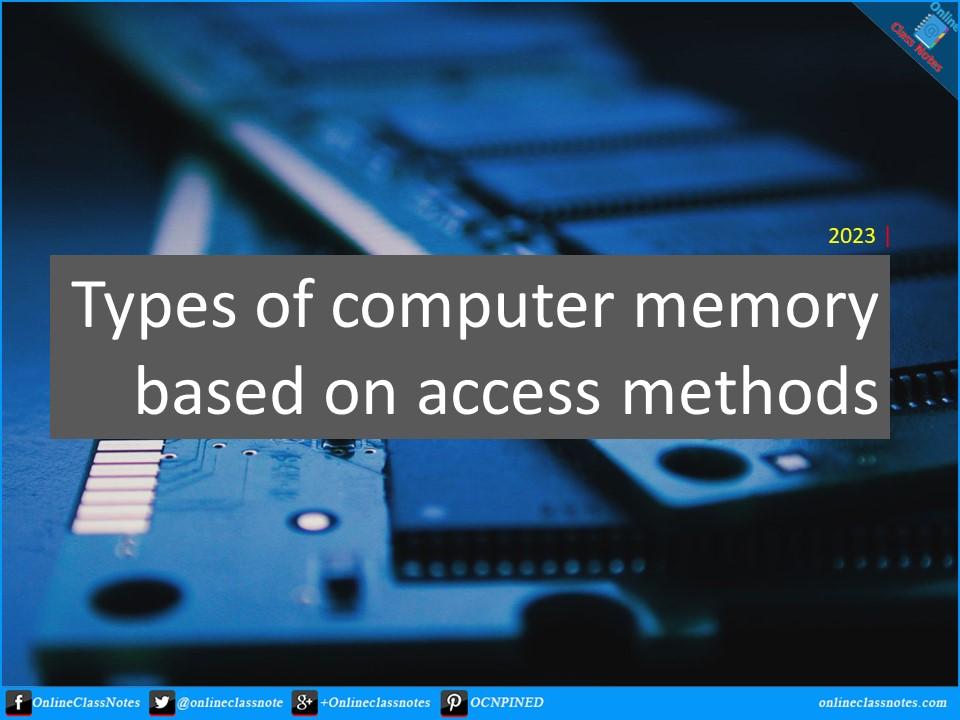A computer system is composed of several key components that work together to process and manage data. These components can be broadly categorized into hardware and software, with hardware referring to the physical parts of the computer and software referring to the programs that run on the hardware. Here are the primary components:
Computer Fundamentals
Explain the purpose and function of CPU caches. What are the different levels of cache memory, and how do they impact CPU performance?
CPU caches serve as high-speed storage units that store frequently accessed data and instructions to reduce the latency of memory access and improve overall CPU performance. Caches are designed to exploit the principle of locality, which states that programs tend to access a relatively small subset of data and instructions repeatedly within a short period of time. By storing this frequently accessed data and instructions in caches, CPUs can minimize the time spent waiting for data to be fetched from slower main memory.
Explain the function and importance of the CPU in a computer system. How does it interact with other components?
The CPU (Central Processing Unit) acts as the computer’s brain, managing instruction execution and conducting essential calculations for system functionality. It coordinates data processing, executes programs, and interacts with other components to ensure seamless operation.
What are the 10 limitations or disadvantages of third generation of computers?
The third generation of computers, marked by the utilization of integrated circuits (ICs), brought about significant improvements in computing capabilities. However, along with these advancements, there were certain limitations or disadvantages of third generation of computer which are described here.
How Does a CPU Contribute to the Overall Functionality of a Computer?
The Central Processing Unit (CPU) is often referred to as the “brain” of a computer. It plays a pivotal role in the overall functionality of a computer system, serving as the core component responsible for executing instructions, processing data, and coordinating various hardware and software components. The functions of CPU in overall functionality of a computer can be categorized into several key aspects:
What are the 15 important roles of input/output systems in computer?
In the realm of computer science, input and output (I/O) systems play a crucial role in facilitating communication between users and computers. These systems allow users to provide data and receive results, enabling the execution of various tasks and making computers indispensable in our daily lives.
10 features of e-commerce to consider when choosing the right e-commerce platform
With the rise of e-commerce, businesses of all sizes are looking to establish their online presence. Choosing the right e-commerce platform is critical for success, as it can impact the website’s functionality, user experience, and ultimately, the bottom line. With so many options available, it can be overwhelming to choose the right one. In this article, we will discuss the key features to consider when choosing an e-commerce platform.
What is memory access method? What are the different types of memory access methods?
Memory access method
Memory access method refers to the way in which a computer system reads from and writes to memory. It describes the mechanism by which data is transferred between the computer’s CPU and its memory modules, and how the computer locates and retrieves data that is stored in memory. Memory access methods can have a significant impact on the performance of a computer system, particularly with regard to speed and efficiency.
Types of computer memory based on access methods
Computer memory
Computer memory refers to the internal storage space in a computer where data and programs are temporarily or permanently stored for processing. It is an essential component of a computer system, and its size and type can affect the performance and capabilities of the computer. There are different types of computer memory, each with different access methods and speeds, including RAM, ROM, cache memory, flash memory, and virtual memory. The ability to access and manipulate memory is fundamental to a computer’s ability to perform tasks and operate software applications.
10 must-have features of an e-commerce website in 2023
The world of e-commerce has seen massive growth over the past few years, and with the events of 2020, the industry has experienced even more acceleration. As the e-commerce landscape continues to evolve, it is important for businesses to stay on top of the latest trends and technologies in order to remain competitive.
